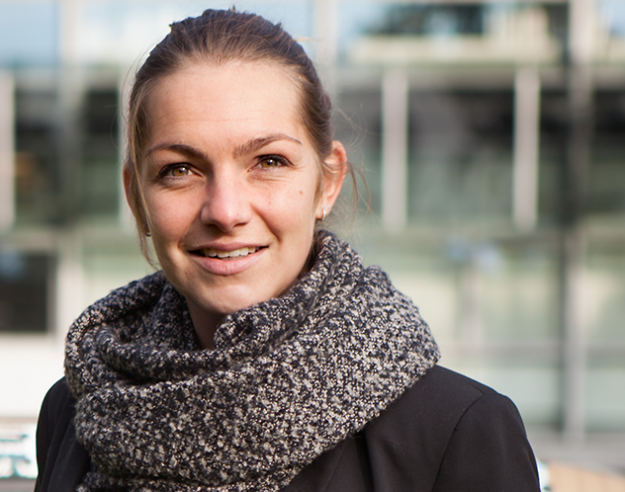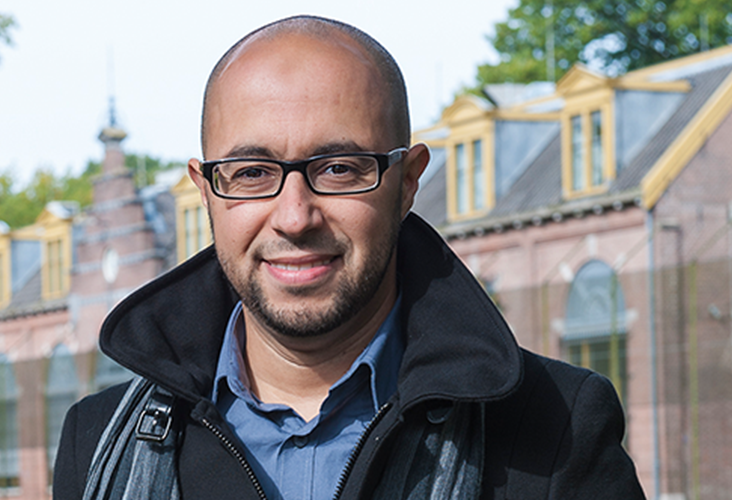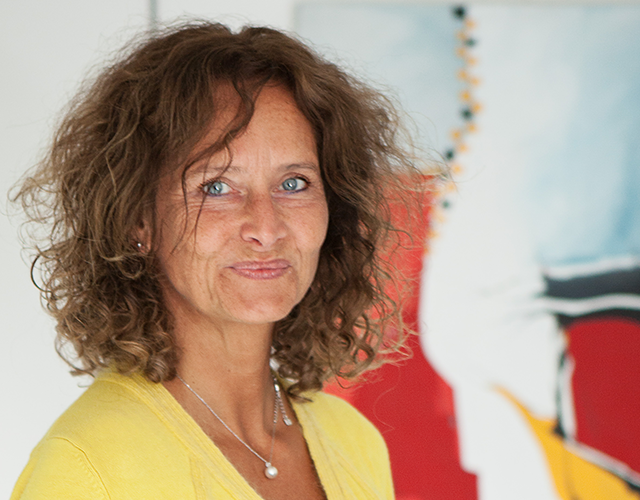There are now around 100,000 VU alumni. Where do our students end up after completing their studies? Every month in this section we introduce three alumni who pursued the same degree programme. This edition features Theology & Religious Studies.
‘We introduced speciality catering into the canteen’

What work are you involved in? “Together with my good friend Charlotte I set up the company WE CANTEEN: we remodel company canteens into food courts where local entrepreneurs offer a variety of food and drink.”
How did this come about? “During my studies I spent six months in Leuven, and Charlotte was in Singapore. We both found the catering facilities there far better than in the Netherlands. Even though the nice, special establishments offering Spanish or Vietnamese cuisine, for instance, were already starting to appear here. So we introduced specialty catering into the canteen.”
Why did you decide to study Theology & Religious Studies? “I first studied Business Administration at the University of Amsterdam for a year, but I missed the connection with people there. However, I felt much more intrigued by the question of how religion affects people, both population groups and individuals.”
Does your work still have any relation to your studies? “I learned to listen to what people have to say, and I still benefit from that today. When recruiting and selecting entrepreneurs it’s important to understand why they do something and what it means to them.”
What was the most enjoyable subject? “I really enjoyed the honours programme. That’s where I met Charlotte and I was able to spend a month at a congress in the USA, where I made acquaintance with people from all over the world. Wherever I travel, I can always meet up with one of them.”
Who were your favourite lecturers? “Eddy van der Borght helped me combine my studies with my company. He showed me who I am and what I want. I found it hard to choose, but I decided that I didn’t want to do my Master’s programme in a half-hearted manner and that it could wait.”
‘I’ve learned how to enter into conversation with an inmate’

What kind of work do you do? “I work as an imam with the Spiritual Counselling Service in the penitentiary in Veenhuizen. Essentially, my work is to help Muslim inmates with questions relating to life and the meaning of life. I give them the tools for self-reflection, with the aim of reducing recidivism.”
Do you often encounter radicalization in your work? “That’s an issue I’m always alert to, just like my colleagues in other prisons. We’re the only ones with the antennae to pinpoint who is susceptible to radicalization and in that case we
Did you always want to do this work? “To begin with I taught religion, but I didn’t find that work really satisfying. By nature I really like to help people. If their life is just in ruins, then that’s a challenge I take up. When I heard about this course I started doing it parallel to my work.”
Did you benefit from your programme? “Yes, a great deal. I learned to view myself critically and learned how to enter into conversation with an inmate. I can translate the texts and traditions of Islam to the backgrounds and environments of the people I work with. I have become a bridge-builder.”
Which teacher impressed you a lot? “Arslan Karagül. He was a coach to me. He also supported me with my thesis in which I developed an Islam-based reflection model for Muslim inmates.”
> In the TV programme Imam achter tralies (Imam behind bars) Sohail talks in detail about his prison work.
‘I really benefited from this study programme’

Where do you work? “I work three days a week in the geriatric outpatient clinic at GGZinGeest, a large mental health institution in the Amsterdam area. I treat anxiety and depression disorders and problems with relationships and sexuality. Since 2013 I have also been working three days a week in my own practice De Lijfspreuk, where I mainly give Shiatsu therapy.”
Why did you decide to study Religious Studies? “I am very interested in spirituality. I have travelled in Asia and wanted to know more about other religions besides Christianity. In 2006 I started studying parallel to my work.”
Did you benefit from the programme? “Yes, I really benefitted from this study programme. The elderly people with whom I work with at the outpatient clinic come from different cultural backgrounds. I now understand their traditions better. It’s a real advantage, for instance, if you’re quite familiar with Islam.
What are the most important things you learned? “I have become much more aware of the opportunities that open up when you consider questions about the meaning of life while endeavouring to solve someone’s problems. What is a person’s view of life, does he or she believe in god, for instance, or in science? Now I see people in the context of their life values.”
What’s the nicest memory of your studies?“One great moment was when Annewieke Vroom, who was teaching the History of Philosophy, facilitated a debate between various cultures in which Orthodox Christians from small villages met up Muslims. I was moved on several occasions to see how a pluriform university environment can contribute to a sense of curiosity, understanding and mutual respect.”
What didn’t you enjoy so much? “I found some subjects rather tough. Conducting a literature search and all the analysis involved. All the things you have to do at home alone in a solitary environment – I found those pretty tough. I was happy when I could go to lectures and seminars and interact with other people.”






